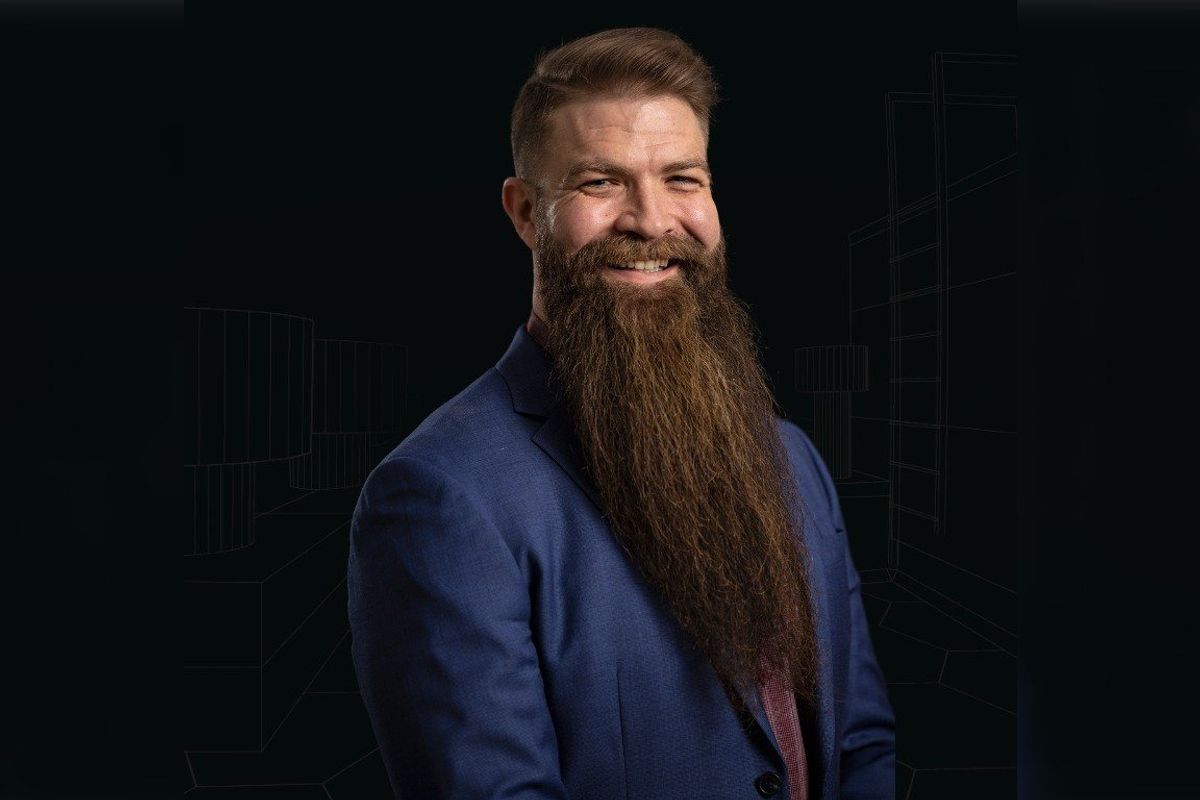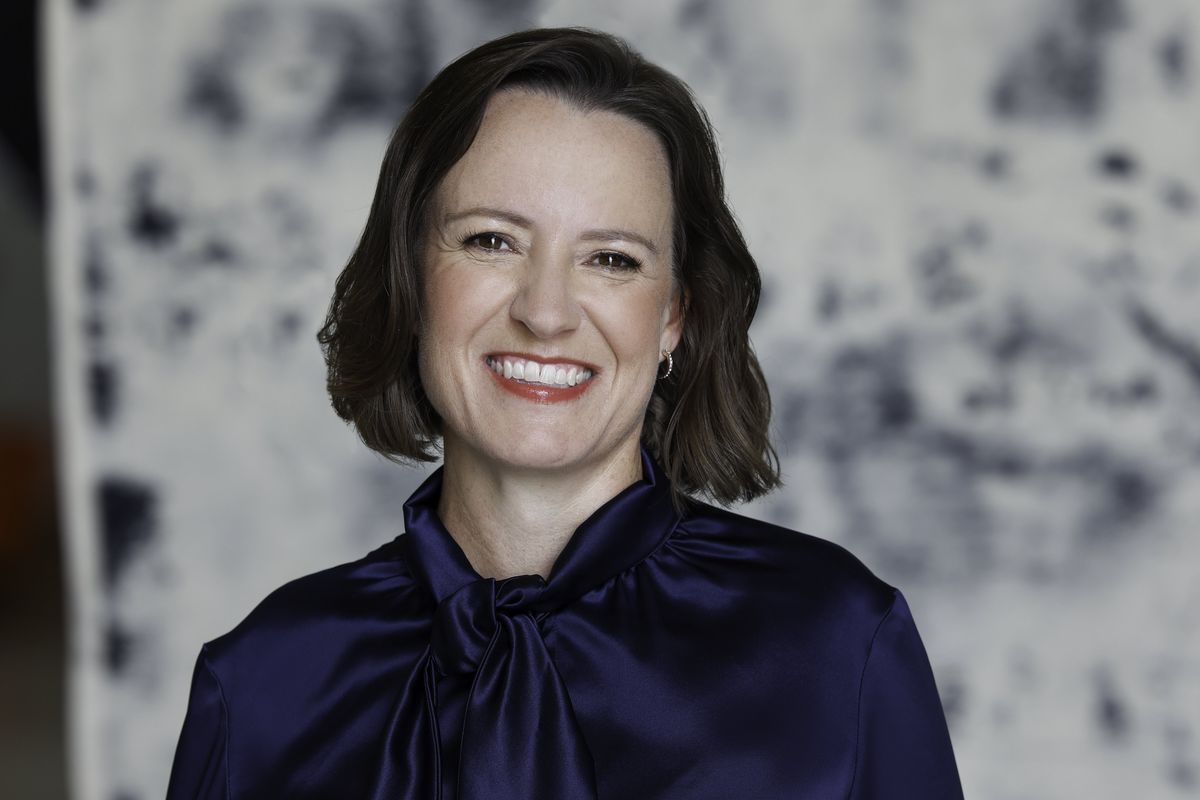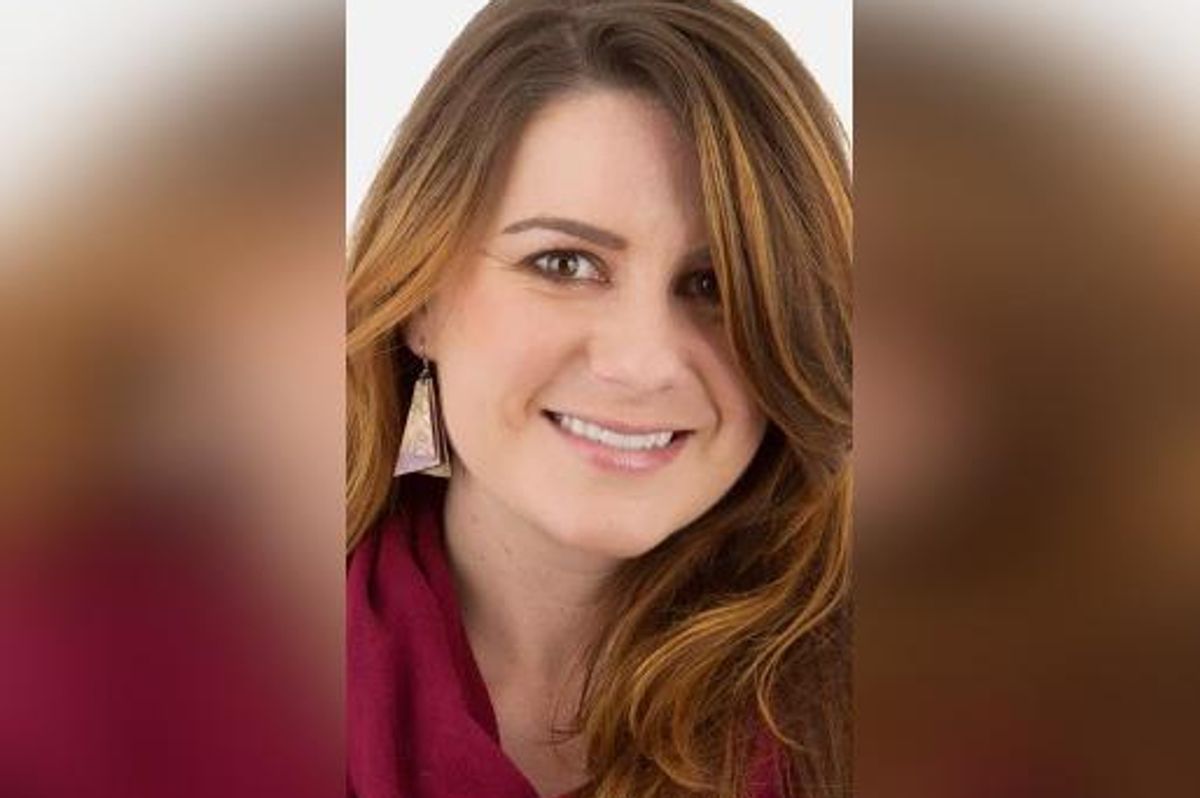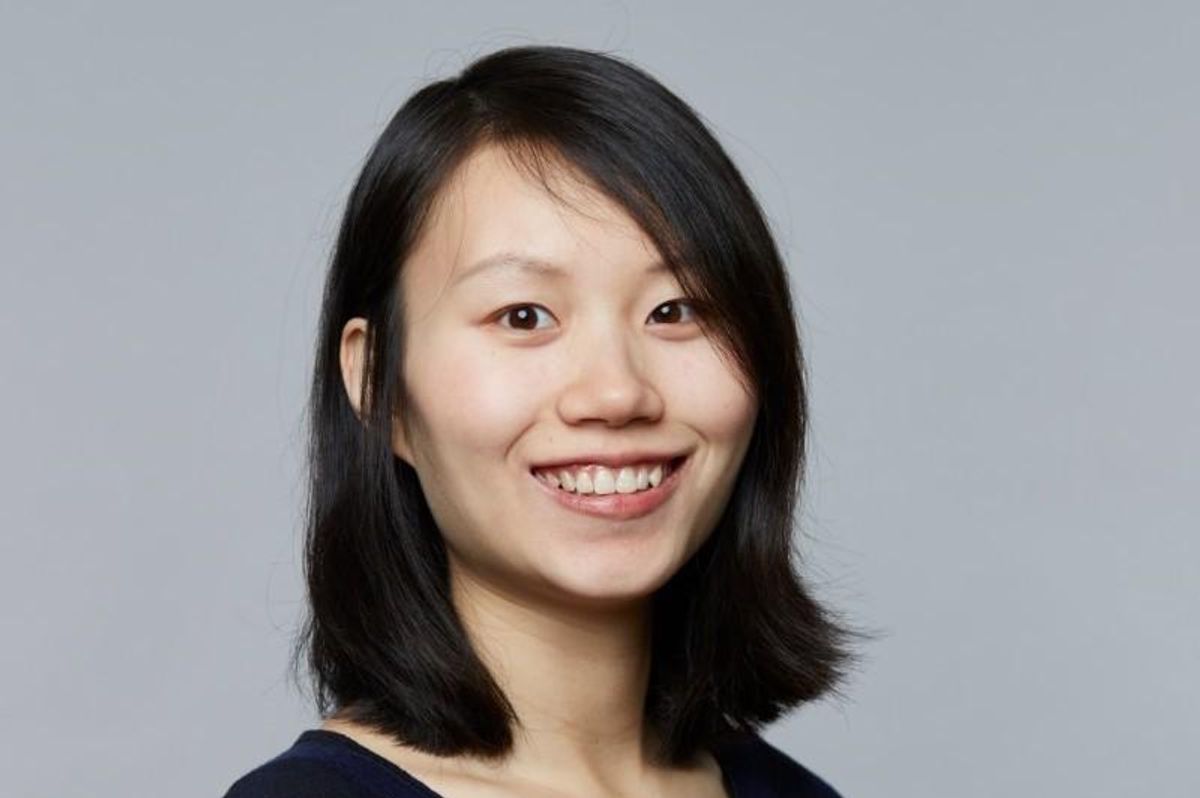Editor's note: In 2023, I recorded 50 episodes of the Houston Innovators Podcast — a weekly discussion with a Houston innovator, startup founder, investor, and more. I've rounded up seven podcast episodes that stood out for me looking back at the year of recordings. Scroll through to see whom I selected and stream their individual episodes, and tune into the last episode of the year where I explain why I enjoyed each conversation.

NanoTech's Chief Commercial Officer Carrie Horazeck and Co-Founder and CEO Mike Francis join the Houston Innovators Podcast to celebrate the nationwide launch of their roof coating product. Photo via LinkedIn
A Houston startup is celebrating its nationwide launch of its flagship product that coats roofs to reduce energy waste.
NanoTech's Nano Shield Cool Roof Coat is a unique product that can be added onto roofs to reduce energy waste on buildings. Co-founder and CEO Mike Francis and Chief Commercial Officer Carrie Horazeck joined the Houston Innovators Podcast to share more details about the product.
"It's just a coating that can go on top of existing structure — any type of commercial roof," Horazeck says on the show. "We have a pretty good amount of data from 2022 showcasing that we can reduce HVAC consumption within the building by about 30 to 40 percent.
"Our clients really see a immediate benefit in their energy bill, and, of course, if you reduce the HVAC consumption, that automatically translates to a decrease in your scope one emissions," she continues. Continue reading.

Sarah "Sassie" Duggleby of Venus Aerospace joins the Houston Innovators Podcast this week. Photo courtesy of Venus
Sarah "Sassie" Duggleby is on a mission to get people home in time for dinner — whether they are traveling around the world or working for her business. That's why she founded Venus Aerospace, which is developing hypersonic space planes. It's also why she relocated the company from the West Coast to Houston.
"We knew we had to find a location where we could test our engine and still be home for dinner," Duggleby says on this week's episode of the Houston Innovators Podcast. "Our company vision is 'home for dinner.' We want to fly you across the globe and have you home for dinner. And, if you work for us, we want you home for dinner."
Venus's technology enables this revolutionary travel through its supersonic combustion engine — more akin to a rocket's engine than an airplane's — that allows for travel at a higher elevation, she explains on the show. Jet engines rely on air outside of the aircraft to combust, and rocket engines work with a system that supplies air internally. And, as Duggleby explains, the engine can go further with the same amount of fuel, so it's a more sustainable way of traveling too. Continue reading.

For Howard Berman, CEO and co-founder of Coya Therapeutics, commercializing his company is personal. Photo courtesy of Coya
When Howard Berman sought out renowned Houston Methodist researcher and neurologist Dr. Stanley Appel, he was looking for treatment for his father, who was suffering from dementia. He wasn't looking for a job, but Dr. Appel had other ideas and asked Berman to meet with him.
"I was interested in what I could do for my dad," Berman says on the Houston Innovators Podcast, explaining how he took the meeting with Dr. Appel, who then presented him with some of his research. "By slide five my jaw had hit the ground.
"He had shown that he could stop the progression in one of his early trials of ALS," Berman says.
Not too long after that meeting, Berman, who founded digital health platform imaware, joined Dr. Appel to lead commercialization of Coya Therapeutics, a biotech startup that raised over $20 million in venture funding before going public a few months ago. Continue reading.

Ramanan Krishnamoorti, vice president of energy and innovation at the University of Houston, joins the Houston Innovators Podcast to talk about the university's dedication to helping the city become an innovative force. Photo via UH.edu
Ramanan Krishnamoorti has had a varied career in academia, from an engineering professor to nanotech research. While he never made the transition from researcher to entrepreneur, he managed to snag a CEO title at the university about a decade ago: Chief energy officer.
Since then his role has expanded to include advancing UH's innovation of all kinds — from health tech to the arts — as vice president of energy and innovation at UH. In his role, he oversees the UH Technology Bridge, a lab and coworking space for tenants just a short drive away from UH's main campus, as well as future plans, like a new central campus hub for innovation that's in its early stages of development.
"What we really need at the university today is to bring innovation — which tech transfer is a piece of — and connect that to real-world challenges to deliver what the world needs, which is talented folks delivering new innovative, entrepreneurial, or intrapreneurial programs," Krishnamoorti says on this week's episode of the Houston Innovators Podcast. Continue reading.

Erik Ibarra's latest venture is to give agency to residents in the neighborhood he grew up in. Photo courtesy
Innovation isn't always tinkering with tech or programming software, although serial entrepreneur Erik Ibarra knows that world well. Sometimes it's about rethinking how a community improves and develops without doing the residents a disservice.
That's why Ibarra started Magnolia Fund, a mission-driven investment fund dedicated to enriching the East End community and preserving the neighborhood's culture and history. Ibarra, who has lived in the area the majority of his life, says on the Houston Innovators Podcast, that he's looking to turn residents into investors.
"Our investors from the neighborhood, today they walk around and look at their house and say, 'I own that,' and that's great," Ibarra says. "In the future, our investors should be able to say that, and then point to a building and say, 'I own a portion of that building too. And I helped that small business over there.'" Continue reading.

Anshumali Shrivastava joins the Houston Innovators Podcast to share the revolutionary work ThirdAI is doing for artificial intelligence. Photo via rice.edu
Anshumali Shrivastava's career has evolved alongside the rise of artificial intelligence. Now, he believes his company represents the future of the industry's widespread implementation.
Shrivastava, who's also a professor at Rice University, founded ThirdAI, pronounced "third eye," in 2021 to democratize artificial intelligence through software innovations. As Shrivastava explains on the Houston Innovators Podcast, AI processes have historically been run on larger, less accessible computing hardware. ThirdAI's tools are able to run on a regular central processing unit, or CPU, rather than the more powerful graphics processing unit, or GPU.
"We focus on the problems that people are facing in the current AI ecosystem," Shrivastava says on the podcast. "Right now, if you are to build some of the large-language models and (linear programming) models, you need a lot of computing power, dedicated engineers to move it, and, even if you are using fully managed services, it's costly and there are a lot of privacy implications because you have to move data around." Continue reading.

Hello Alice Co-Founders Carolyn Rodz and Elizabeth Gore join the Houston Innovators Podcast to discuss the lawsuit they're facing. Photo courtesy Cayce Clifford/Hello Alice
For years, Hello Alice has been helping small businesses across the country get equitable access to funding and support. Now, the Houston tech company is facing its own obstacle: An affirmative action lawsuit.
"I don't think in a million years that we ever expected anything like this," Elizabeth Gore, co-founder and president of Hello Alice, says on the Houston Innovators Podcast. "There's surprise, then there's fear, and then there's anger. But now on the other side of it, we're emboldened, confident, and more passionate than ever."
America First Legal's lawsuit against Hello Alice and its partner, Progressive Insurance, alleges that their program to award10 $25,000 grants to Black-owned small businesses constitutes racial discrimination. AFL was founded by former Trump Administration adviser Stephen Miller and features a handful of other former White House officials on its board. Continue reading.













